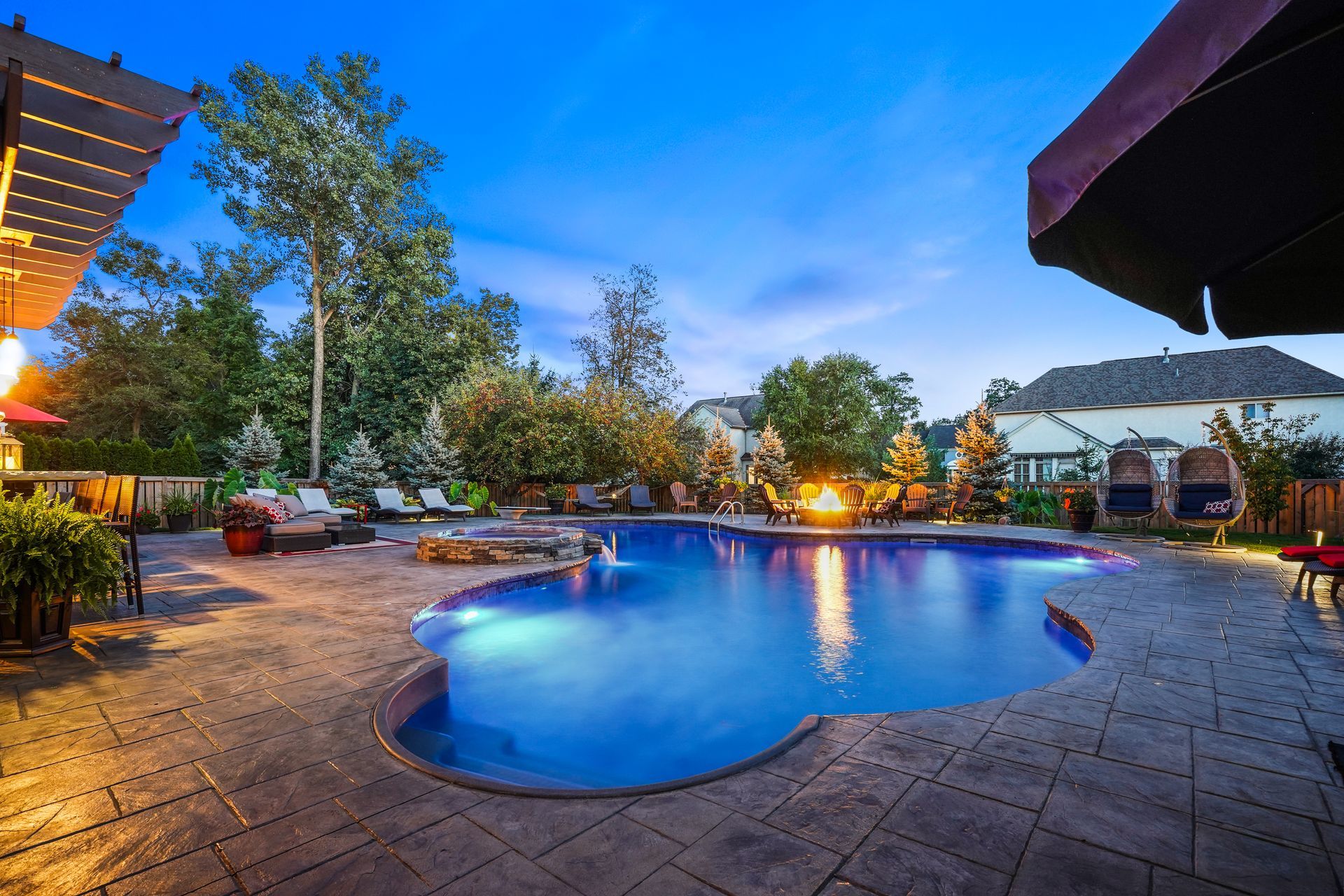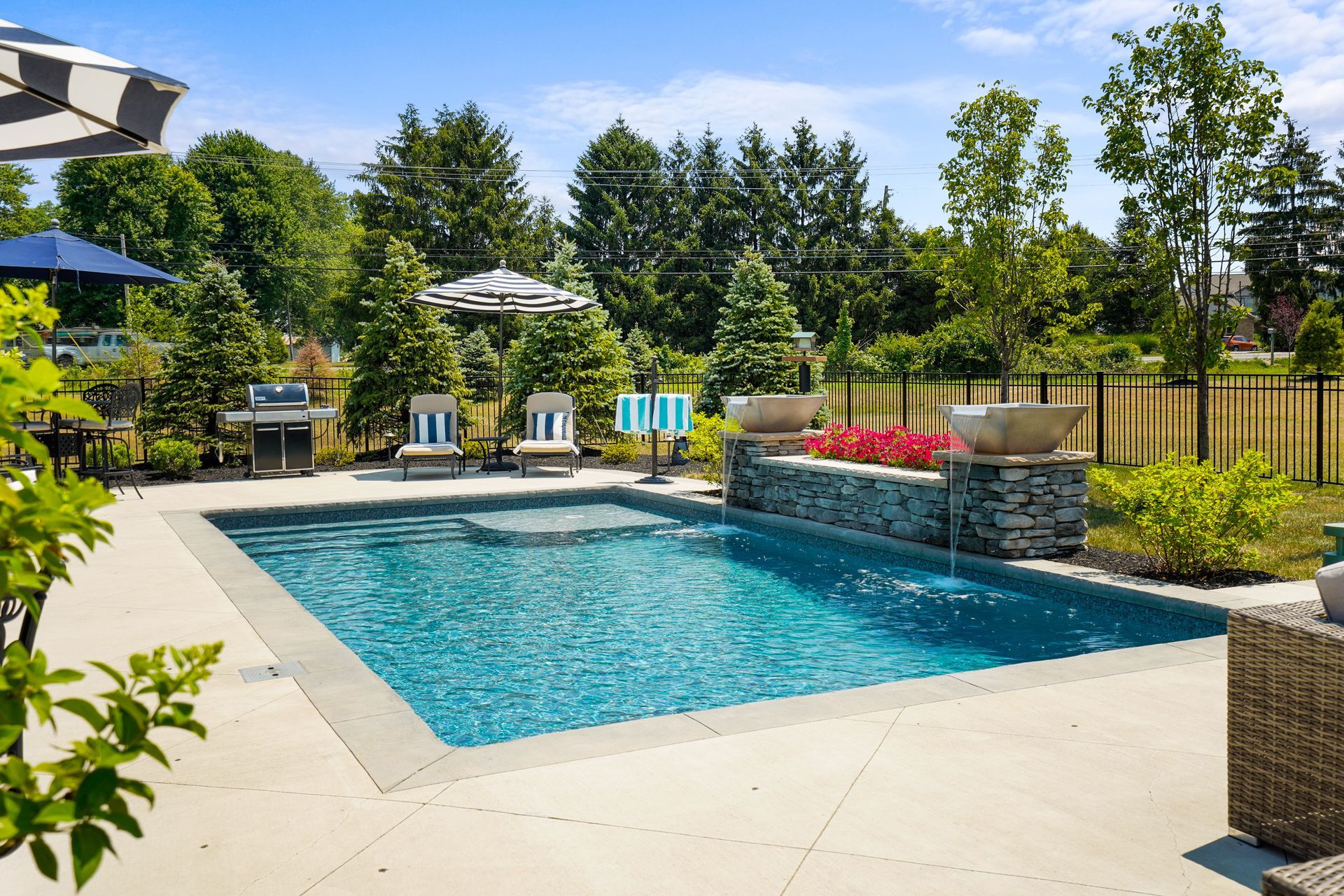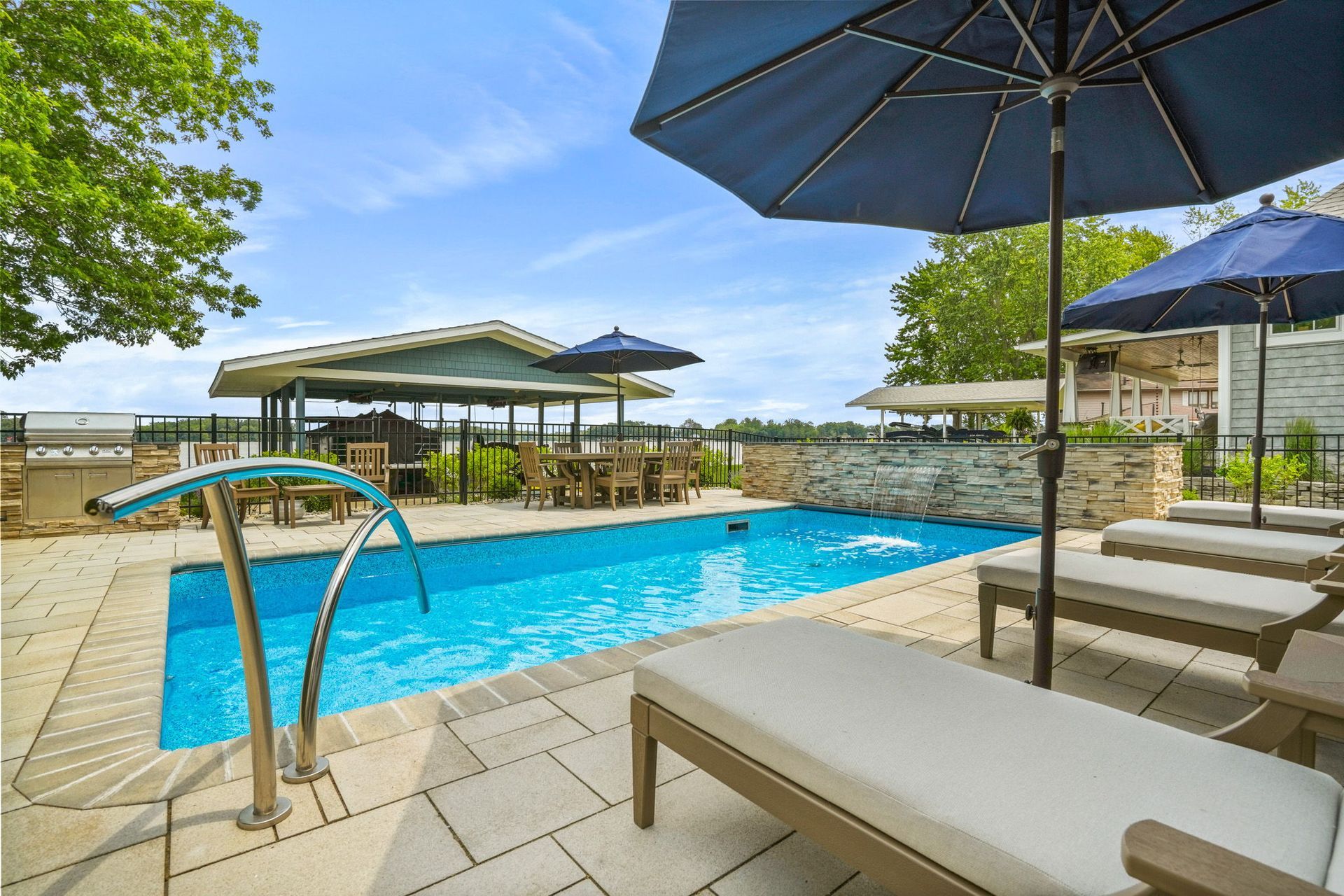Upfront Costs vs. Maintenance for Inground Swimming Pools
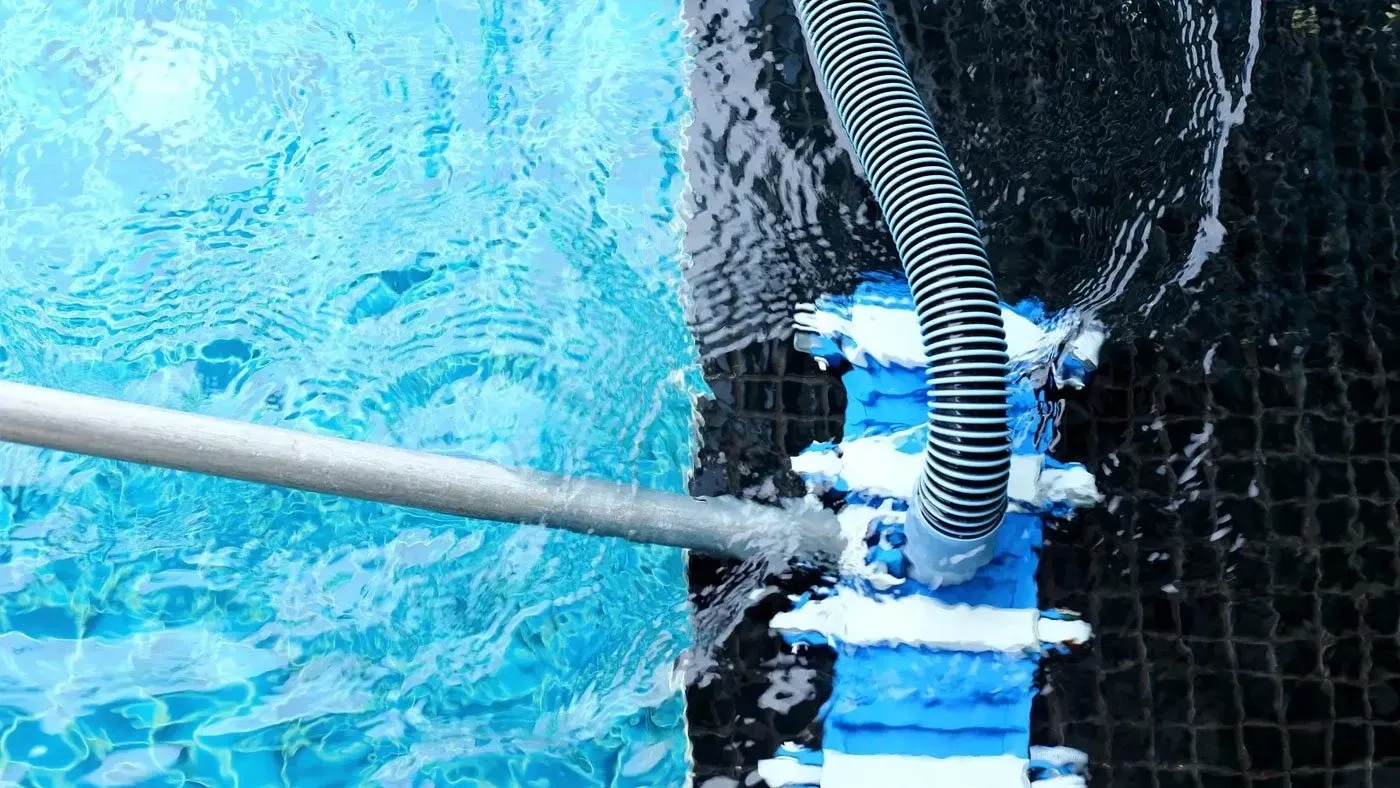
You might have already made the decision to have an inground swimming pool installed on your property. Now, it’s time to decide what type of pool you are going to go with. Two popular options are fiberglass and vinyl inground swimming pools. When you’re trying to decide between the two, you will probably want to consider things like cost and maintenance. Then, you can decide which type of inground swimming pool might be right for you and your family.
What is the Most Affordable Swimming Pool Type to Install?
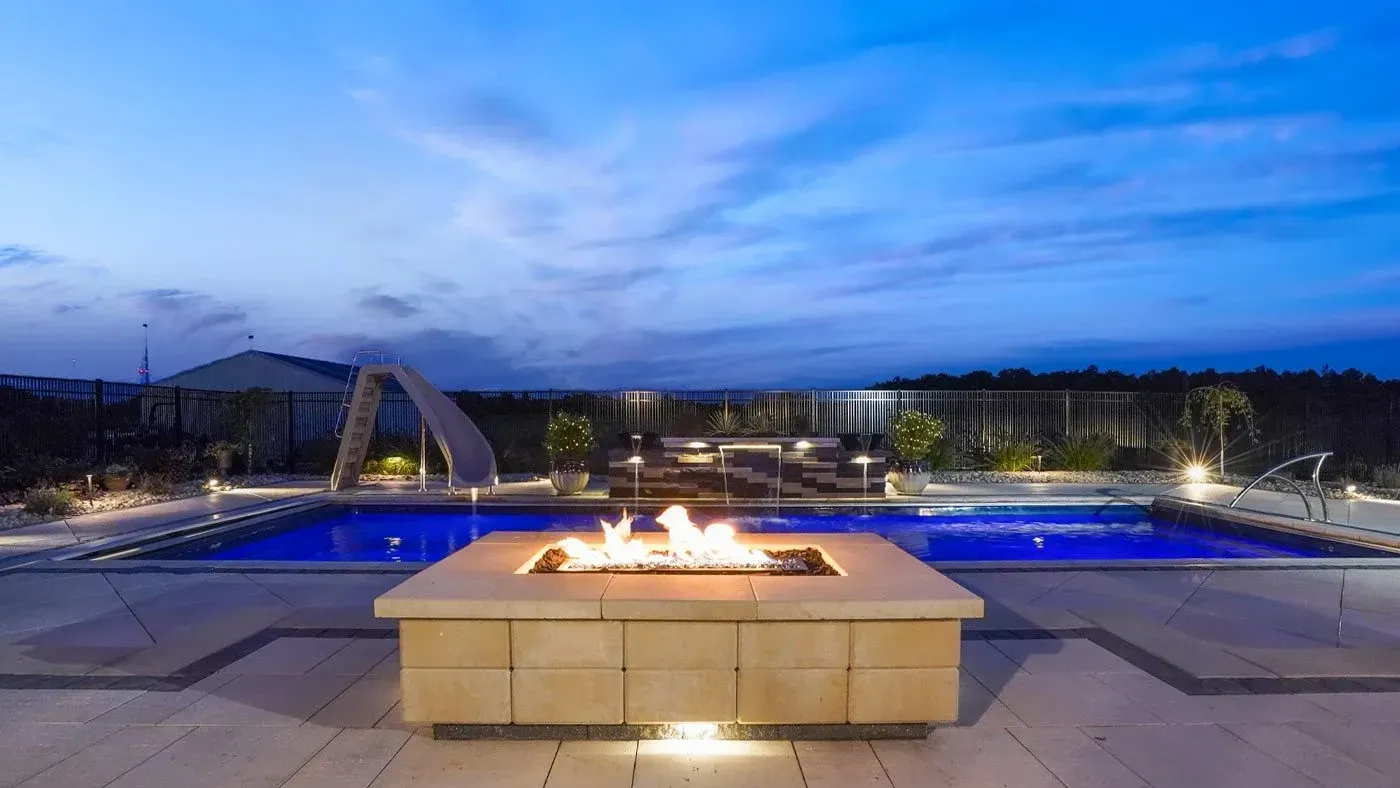
You might already know that installing any type of swimming pool on your property will require an investment. This is even more true with inground swimming pools, which are more expensive than most above-ground options. However, if you’re hoping to stick to a fairly reasonable budget when installing an inground swimming pool, you could be curious about which option is going to be the most affordable.
Generally, pools with vinyl liners are more affordable than fiberglass swimming pools. However, even though the upfront costs might be cheaper with these swimming pools, you’ll probably spend more over the lifetime of your pool if you choose a vinyl pool. This is because these vinyl liners do have to be replaced every few years.
Also, be aware that even though fiberglass pools are usually more expensive than pools with vinyl liners, the cost difference might not be as significant as you think. Both pool options are typically more affordable than standard concrete pools.
How Else Can You Reduce Swimming Pool Installation Costs?
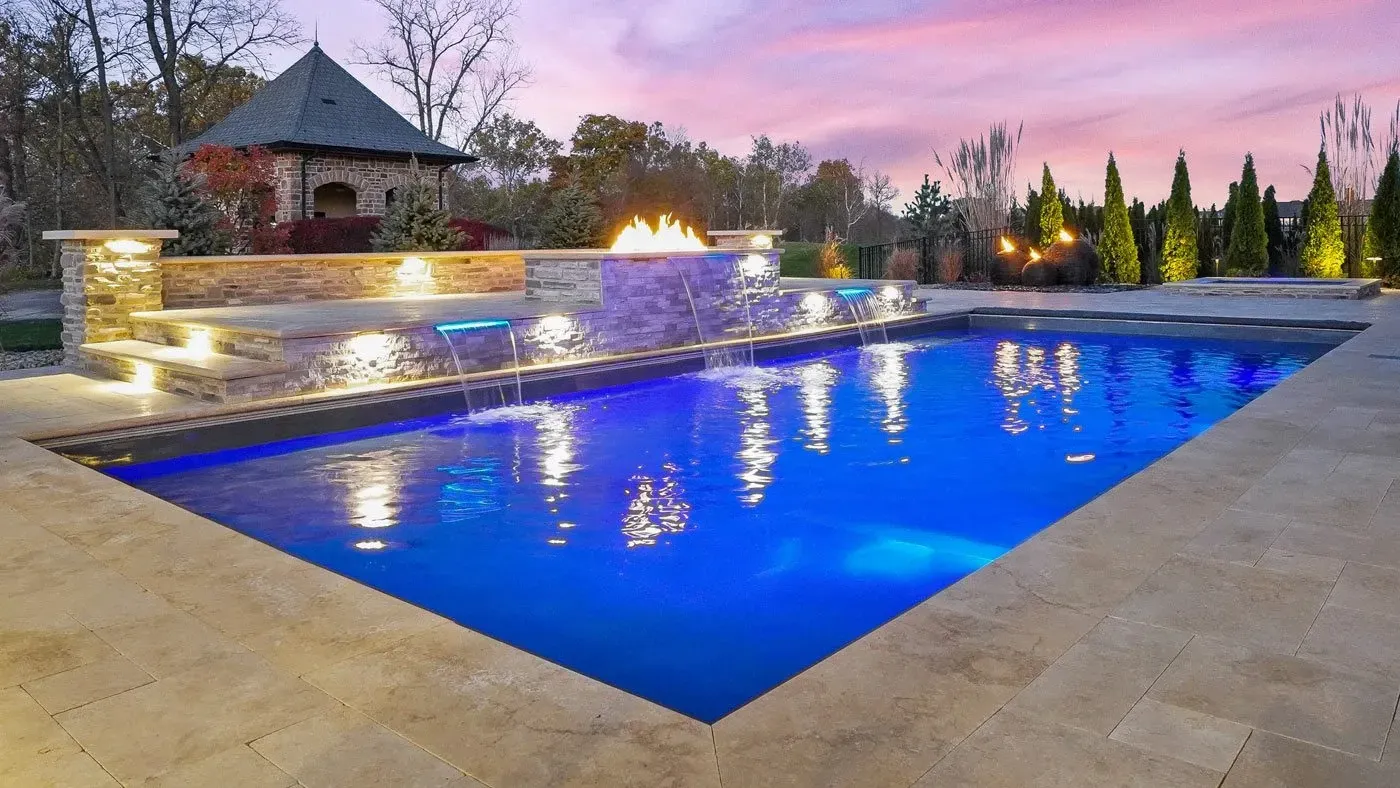
Since the upfront installation cost of installing a fiberglass pool does cost more in most cases, you could be wondering if there is anything that you can do to keep this cost down. In addition to the construction of the pool, there are other things that impact the pricing as well, such as the design and the size.
You will obviously want to make sure that the pool is large enough that you and your family members can all enjoy it. You may even want to make sure that there is extra space for when you invite guests over. However, your pool might not have to be as large as you think. Since you will not have to share it with the public, even a smaller pool might be just fine. In fact, it might be ideal to go with a smaller size; not only will it be cheaper and easier to install and maintain, but it will not take up as much space in your yard, either.
If cutting down on costs is important to you, then you might want to opt for a simple design, too. Freeform pools or pools with custom shapes are typically on the more expensive side, for example. Opting for a simple, classic style can help you keep your costs down, regardless of if you choose fiberglass, vinyl or even concrete.
Which Pools are Easier and Cheaper to Maintain?
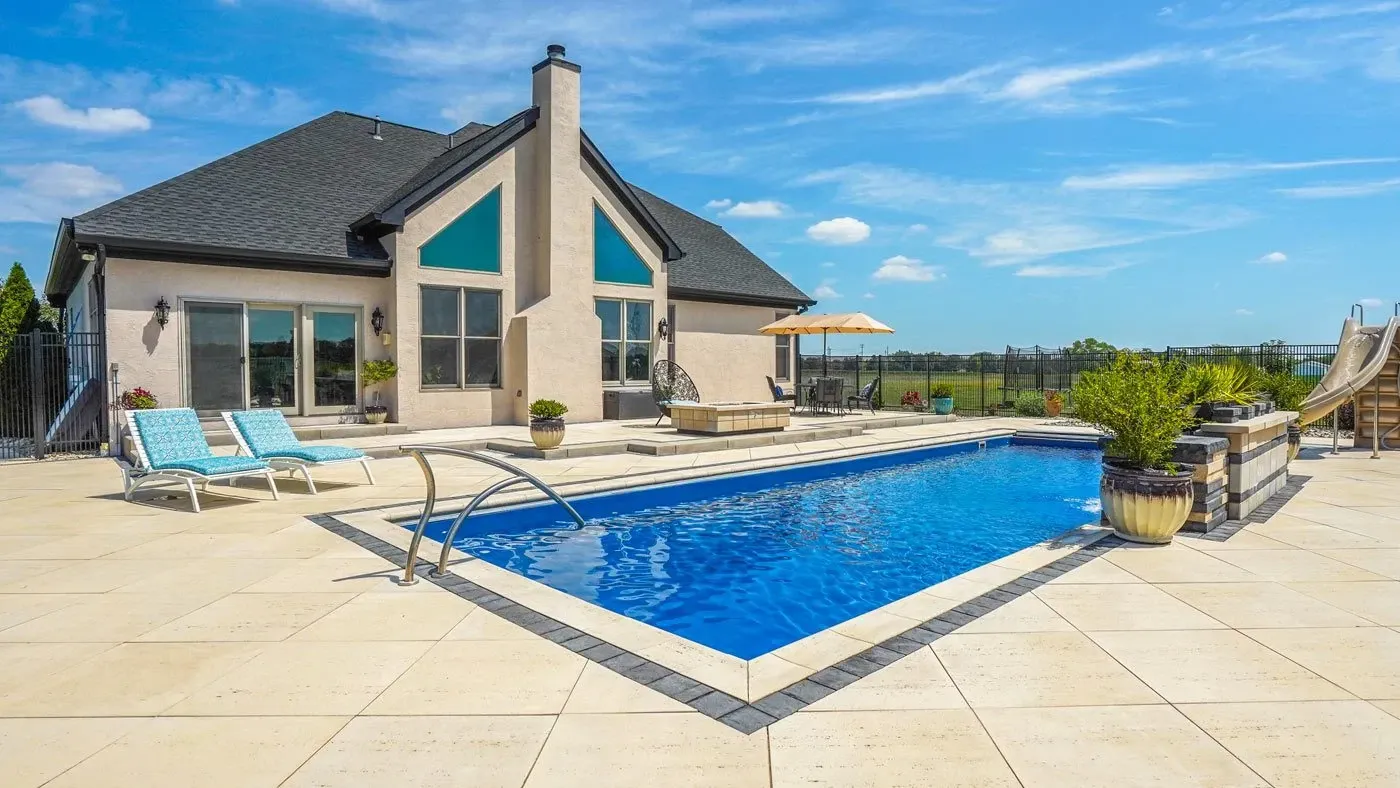
You probably want your pool to be a fun addition to your household, not something that you’re going to regret or that is going to put you in a financial bind. You don’t just have to worry about the cost of your swimming pool when you first install it; you also have to think about how much it will cost for you to maintain your pool over the years. Many families find that having a swimming pool fits comfortably into their budgets, but you will want to be aware of and prepared for the expenses so that you can take care of and truly enjoy your swimming pool.
Lifetime expenses are typically higher for pools with vinyl liners. No matter how careful you are with your pool liner, it will have to be replaced in a few years. Over time, the cost of replacing pool liners can really add up. Fiberglass pools typically last for years with little maintenance needed. In fact, many manufacturers of fiberglass pool shells even offer lifetime warranties on their products.
How Can You Reduce Pool Maintenance Costs?
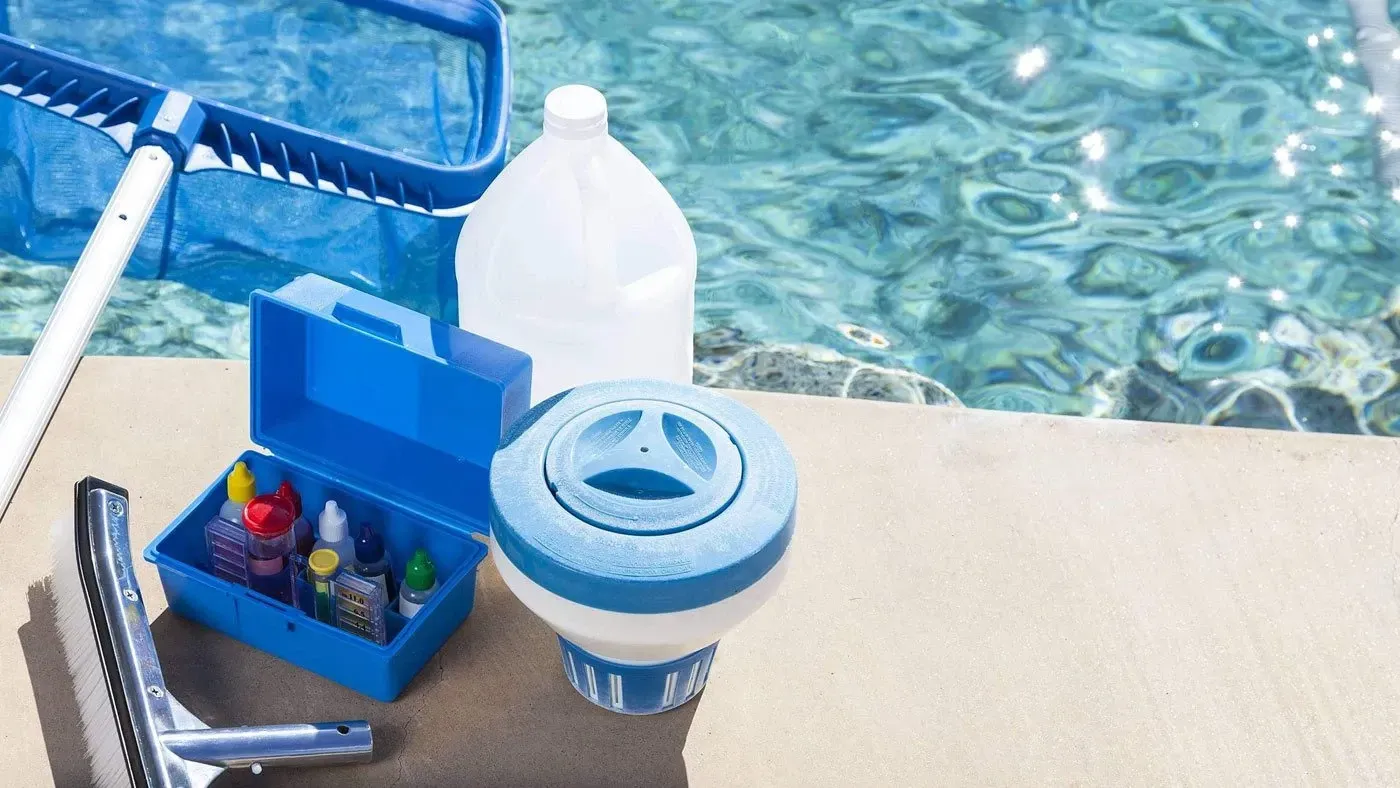
If you choose a pool with a vinyl liner, you could be concerned about just how much money you will have to shell out to pay for swimming pool maintenance over the years. Being careful about things like keeping pets out of the pool is important. After all, pet claws can easily scratch your pool liner, causing it to have to be replaced a lot more quickly.
Even if you choose a fiberglass pool that has lower maintenance costs over time, you’ll still have costs for pool maintenance. If you would like to reduce these costs, there are ways that you can do so.
For example, you might choose to use a pool service like Omni Pools to help you with keeping your fiberglass or vinyl pool clean. Learning how to do some of the work yourself can help you save on these costs. It might take a little bit of time and research to determine how to use pool chemicals properly and how to clean your pool efficiently and effectively, you may find that it is worth it so that you can enjoy reduced costs.
You can often purchase accessories for taking care of your pool for less, too. Buying chemicals for your pool in bulk might be a great idea, for example; you may be able to find them on sale at the end of the summer, for example, and stocking up will help you score the lowest price on chemicals for next year and will help you avoid running out.
Since installing a swimming pool is a big decision, it’s important to choose the right type of swimming pool. The tips above will help you with making your decision, but you’ll probably also want to consult a professional. If you live in central Ohio, contact us at Omni Pools & Scapes today so that we can talk to you about your different pool installation options.
OMNI LEARNING CENTER
RECENT POSTS
